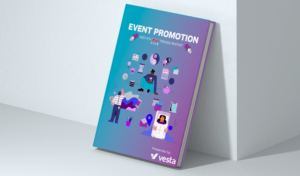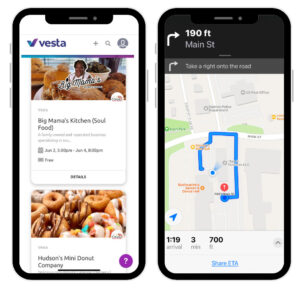Planning an event can be an exciting and rewarding exbperience.
Whether it’s a birthday party, a yoga studio community event, or a conference, events offer the opportunity to bring people together and create unforgettable memories. However, planning an event can also be a challenging task that requires careful attention to detail.
One reason why organizing an event is so important is that it allows us to connect with others in meaningful ways. Events bring people together from different backgrounds and cultures and offer opportunities for networking, learning, and socializing.
Moreover, events can help raise awareness about important issues and causes or celebrate significant milestones like weddings or graduations. Despite their significance, organizing an event requires a lot of planning and coordination.
There are many details to consider such as the venue, catering services, decorations, entertainment options etc., which can become overwhelming without proper management. Nevertheless, with the right approach and mindset, anyone can plan an amazing event that leaves a lasting impact on guests’ lives.
Looking for more inspiration? Check out our list of 19 Event Types That Dominated Our 19,153 Promotions In 2023.
Before You Start Planning An Event: Determine the Purpose and Type of Event
Identify the Purpose of the Event
Before you start planning your event, you need to identify its purpose.
Are you celebrating a milestone, raising funds for a cause, or educating attendees about a particular topic?
The purpose of your event will inform all other aspects of planning, from the type and location to the budget and promotional strategy.
In other words, what is the objective? Is it to celebrate something? Is it to spread awareness for a brand? Is it to showcase musicians or other artists? Is it to make money?
If you’re organizing a celebration, such as a birthday party or wedding anniversary, your focus will likely be on creating an enjoyable experience for guests. On the other hand, if you’re hosting a fundraiser for a charity or non-profit organization, your goal may be to raise as much money as possible.
It’s important to be clear about your event’s purpose before moving onto other planning stages. This will help you prioritize what is most important and ensure that all decisions align with achieving that purpose.
Decide on the Type of Event
The next step in organizing an event is deciding on its type.
Will it be formal or casual? Indoor or outdoor?
Will there be speeches or presentations? The type of event you choose should reflect its purpose and appeal to your target audience.
There is also a big opportunity in flipping the script. Give yourself some room to imagine what would be a fun, engaging way to achieve your objective without putting yourself in the box of how “it is normally done”.
For example, if it’s a corporate conference aimed at professionals in a particular industry, then formal attire and structured sessions may be appropriate. However, there might be an opportunity as an event planner to come up with a more fun and engaging format for an event for the same professionals. Professionals are people too, after all.
Indoor events offer more control over factors such as temperature and lighting while outdoor events provide space for larger crowds but require consideration for weather conditions. When deciding on the type of event also consider accessibility requirements (e.g., wheelchair access) which may impact venue selection.
Identifying the purpose and type of your event are crucial initial steps when beginning to organize an event. Defining these two parameters will allow you to move forward with confidence knowing that you are catering to your target audience and achieving your goals.
Set a Budget
Determine how much money you have to work with
Before you start planning your event, it’s important to figure out how much money you have to spend.
This will help determine what type of event you can afford and guide your decision-making process along the way. Take some time to look at your finances and decide on an amount that is reasonable for your event.
You don’t want to overspend and end up in debt, but you also don’t want to be too frugal and compromise on important aspects of the event.
Once you’ve determined your budget, consider any additional sources of income, such as sponsorships or ticket sales.
Keeping track of all of this in a simple spreadsheet or with an event budget template can help work through all the details.
This will give you a clearer picture of how much money is available for expenses like venue rental, catering, entertainment, and decorations. Remember that unexpected expenses can arise during the planning process, so it’s wise to set aside some extra funds as a contingency plan.
Allocate funds for various expenses (e.g., venue rental, catering, entertainment)
Now that you have a total budget in mind, it’s time to allocate funds for different aspects of the event.
The biggest expense will likely be venue rental – research different options in your area and compare prices before making a decision.
Catering is another major cost – consider whether you want buffet-style or plated meals and whether alcohol will be served.
These are also two places where key partnerships for your events can make your life easier. Partnering with a new venue that ways to get people through the door can sometimes be done on trade. In exchange for letting you use the space for free, they get exposure and a spot as a sponsor on your event.
The same can be done with food, but it usually a good idea to at least pay for the cost of the food. You don’t want to take too much from a partner and end up leaving a bad impression on them.
Entertainment can also add up quickly – decide what type of performers or speakers are appropriate for the occasion and budget accordingly. Other potential expenses include decorations, audio-visual equipment rentals, security personnel fees etc.. Make a list of all necessary items beforehand so that nothing gets overlooked when allocating funds.
It’s important not to overspend on any one aspect while neglecting other crucial areas since this might affect overall success negatively. Remain within budget constraints by using creativity when decorating or feeding guests without sacrificing quality or elegance.
Choose a Venue
Location, Capacity, and Amenities: Finding the Right Venue for Your Event
Choosing the right venue for your event is crucial to ensuring its success. The venue sets the tone for everything from the atmosphere to the number of people you can invite. When looking for a venue, start by considering your budget and event type.
You don’t want to book a space that’s too large or too small, or one that doesn’t fit with the vibe you’re going for. Location is another important factor.
Is your event in a city or a rural area? Will guests need to drive or fly in?
If so, you’ll want to choose a venue that’s easily accessible and has plenty of parking. If you’re having an outdoor event, make sure there’s enough space for everyone and check whether there are any restrictions on noise levels.
Capacity is also key. You want to ensure that there is enough room for everyone who will be attending while avoiding overcrowding – which can be uncomfortable and potentially dangerous in some cases.
At this point, it’s important to also consider other factors such as disability accessibility and potential weather conditions if hosting an outdoor event.
Consider the amenities provided by each venue under consideration – this can include things like tables/chairs on site or catering facilities available on-site so as not to incur further costs outside of what has been budgeted for.
Choosing a venue with adequate amenities can not only make planning easier but also enhance guest experience overall. Finding the right venue takes careful consideration of factors such as location, capacity, and amenities provided among others depending on specific needs of your event.
Taking time when selecting a venue ensures that all these needs are catered towards before committing resources into it.
Create a Timeline and Checklist
Stay on Track with Your Event Planning
Organizing an event can be overwhelming if you don’t have a clear plan of what needs to be done and when. That’s why creating a timeline and checklist is crucial for staying organized and on track.
Start by determining the date of your event and work backward to establish deadlines for each task.
Here’s an example timeline for a one-day event:
- 6 months before the event: Set a budget, determine event purpose, choose venue – 4 months before the event: Hire caterers, speakers/entertainment
- 3 months before the event: Begin promoting through social media or other channels – 1 month before the event: Finalize details with vendors/service providers
- 1 week before the event: Confirm all details with vendors/service providers – Day of the event: Set up venue, greet guests, manage any issues that arise
Once you have your timeline established, create a checklist of tasks that need to be completed leading up to and during the event. This will help ensure that nothing falls through the cracks.
You will also want to make sure to have a checklist of event promotion tasks too. Especially if you’re hosting an concert or public-facing event, promotion will be an essential part of creating a great event.
Consider including items such as sending invitations, ordering decorations, arranging transportation for guests/speakers etc. By creating a timeline and checklist, you’ll be able to stay organized throughout your planning process and ensure that everything is taken care of leading up to and during your big day.
Hire Vendors/Service Providers
Find vendors/service providers for catering, entertainment etc.
After you have determined the purpose and type of your event and set a budget, it’s time to start looking for vendors.
Depending on the type of event you are organizing, you may need caterers, entertainment providers, decorators or other service providers.
A great way to find reliable vendors is by asking friends and colleagues who have organized events in the past for referrals.
You can also use online platforms that connect you with local service providers such as Yelp, Thumbtack or Angie’s List.
When selecting a vendor/service provider, it’s important to consider their experience and reputation within the industry.
Check their reviews online and ask for references from previous clients. It is also essential to communicate your expectations clearly so that the vendor understands what is required of them.
Work with them to ensure they understand your needs
Once you have selected potential vendors/service providers, schedule a meeting where you can discuss your needs in detail. This meeting should be used to establish a good working relationship with the vendor and identify any challenges that may arise during the planning process.
During this meeting ensure that there are no communication barriers preventing either party from understanding each other. It’s important to provide a detailed brief outlining all aspects of what is required including timelines leading up to the event date so that everyone has visibility into expectations and progress at every stage till completion.
Ensure there is clarity regarding payment schedules as well so there are no surprises regarding fees later on down the line. Having open lines of communication throughout this process will help ensure that everything goes smoothly and everyone involved understands their role in making your event successful!
Promote Your Event
Spread Awareness Online
Promoting your event is crucial to its success. One of the easiest ways to do this is online. Depending on the size of the event you’ll want to use event promotion tools to make your life as an event planner easier.
Promote your event on social media, relevant online communities, local community calendars. Encourage attendees to invite their friends too.
Another great way to promote your event online is by reaching out to bloggers or social media influencers who have a following in your niche or industry. Offer them free tickets or a discount code in exchange for promoting the event on their platforms.
Use Promotional Material
While online promotion is important, don’t forget about good old-fashioned promotional material like flyers and posters.
Create eye-catching designs that include all the essential details like date, time, location, and ticket information. Distribute flyers at local businesses, schools, and community centers.
Canva is a great free tool for creating promotional materials.
Make sure you have permission before posting any flyers or posters on public property like utility poles or bulletin boards. You can also get creative with promotional materials by handing out branded merchandise like tote bags or t-shirts at events leading up to your main event.
People love free stuff and will often wear it around town, creating additional buzz for your event. Remember that effective promotion takes time and effort – so start planning early!
Finalize Details
The devil is in the details
Once you have everything in place, it’s time to finalize the details with vendors and service providers.
It’s important to make sure everyone is on the same page and understands your expectations. This includes confirming times, locations, and any special requests you may have.
Be sure to ask questions about anything that isn’t clear to you or that you have concerns about. One thing that people often overlook is getting a backup plan in place in case something goes wrong.
This could be anything from bad weather to a vendor not showing up. It’s always a good idea to have contingency plans so that you can handle unexpected situations with ease.
Cross your T’s and dot your I’s
As you finalize the details of your event, it’s important to double-check everything. Make sure all contracts are signed, payments are made, and all necessary permits or licenses are secured. You don’t want any surprises on the day of the event.
Also, make sure all team members involved in organizing the event are aware of what has been confirmed with vendors/service providers. Keep everybody in sync by using online collaboration tools such as Asana or Trello which allow for easy communication between team members.
Conclusion
Planning an event can seem like a daunting task, but with careful planning and attention to detail, it can be a great success. Remember that every event is different so take time for planning before executing it carefully.
When everything comes together smoothly on the day itself because of careful planning ahead of time – there’s no better feeling! So start organizing your own events today using these tips!
Want help promoting your events and advice on how to make your events more exciting? Click here to learn more about how we help successfully promote thousands of events per year.




